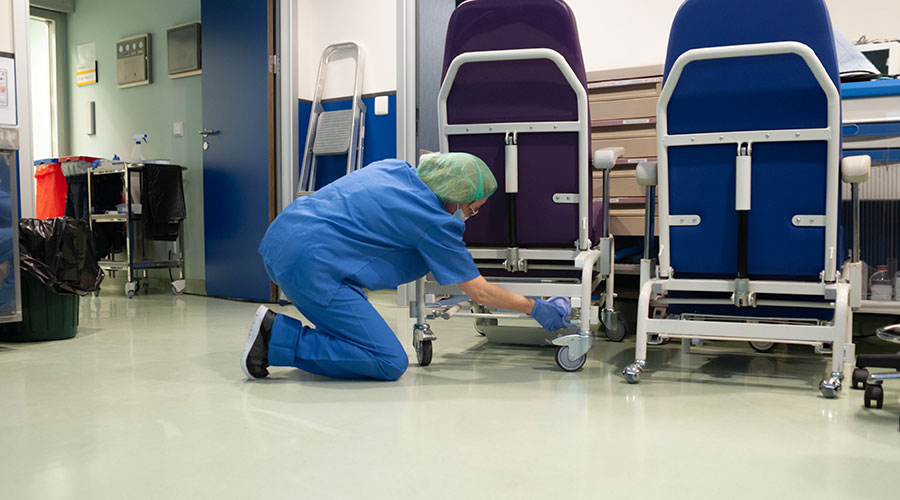With increasing handheld electronics use in hospitals, there is a risk that frequently touched objects can harbor germs, according to an article on the Becker's Infection Control & Clinical Quality website.
Because standard disinfecting methods could damage the electronics, hospitals are trying to figure out how to keep tablets and cell phones from spreading germs.
A study published in the American Journal of Infection Control examined the use of UV light to disinfect these electronics.
Researchers used a handheld UV-C-emitting light and found that a few seconds of irradiation led to a significant reduction of the bacterial load on the surface of the electronics.

 Seeking Standards for Microbial Loads in Healthcare Facilities
Seeking Standards for Microbial Loads in Healthcare Facilities UCR Health Unveils Plans for Major Expansion
UCR Health Unveils Plans for Major Expansion High-Performance Windows Support Safety at UW Medicine's New Behavioral Health Center
High-Performance Windows Support Safety at UW Medicine's New Behavioral Health Center Central Maine Healthcare Dealing with IT System Outage
Central Maine Healthcare Dealing with IT System Outage Kaiser Permanente Opens Newly Expanded Everett Medical Center
Kaiser Permanente Opens Newly Expanded Everett Medical Center